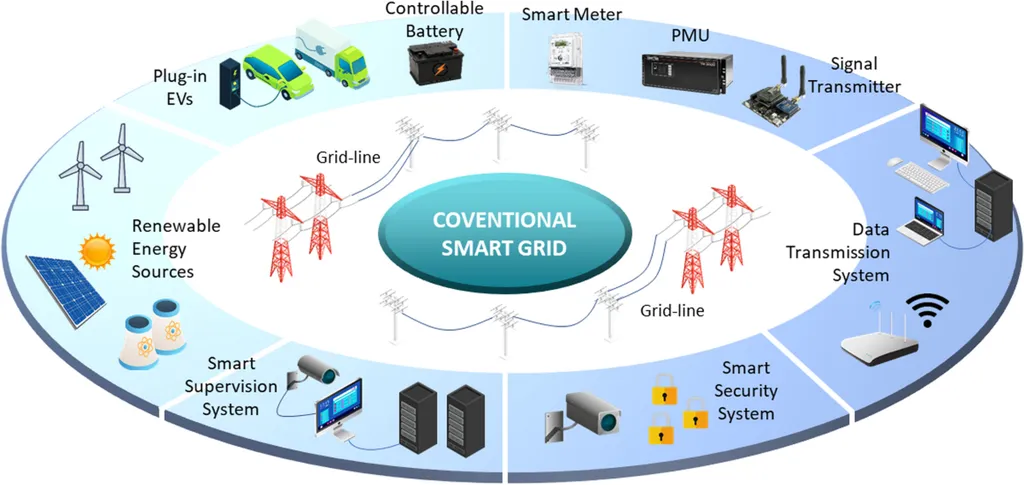In the ever-evolving landscape of electrical power systems, the need for robust monitoring and control mechanisms has become more critical than ever. A recent study published in the journal *Energies*, titled “Modeling and Testing of a Phasor Measurement Unit Under Normal and Abnormal Conditions Using Real-Time Simulator,” sheds light on innovative approaches to enhancing grid resilience. Led by Obed Muhayimana from the Faculty of Electrical Engineering and Communication at Brno University of Technology in the Czech Republic, this research addresses the challenges posed by intermittent distributed energy resources (DERs) and the complexities of active distribution networks (ADNs).
The study highlights the pivotal role of phasor measurement units (PMUs) in modernizing power systems. PMUs are highly responsive devices that can significantly improve the monitoring, control, and protection of electrical power systems (EPS). However, existing simulation tools often fall short in providing comprehensive PMU models. For instance, tools like PSCAD lack PMU blocks entirely, while Matlab/Simulink R2021b offers limited functionality, focusing only on the positive sequence component of measurements and overlooking individual phase information. This limitation hampers the analysis of unbalanced and non-symmetrical fault operations, which are crucial for ensuring system reliability.
To bridge this gap, Muhayimana and his team developed a new, reliable PMU model in Matlab. The model was rigorously tested under both normal and abnormal conditions using real-time simulation and controller-hardware-in-the-loop (CHIL) techniques. “Our goal was to create a PMU model that could accurately capture the dynamic aspects of the power system, including fault conditions,” Muhayimana explained. “By integrating real-time simulation and CHIL techniques, we aimed to provide a more comprehensive and reliable tool for system operators and engineers.”
The implications of this research are far-reaching for the energy sector. As power systems become increasingly complex with the integration of DERs and ADNs, the need for advanced monitoring and control mechanisms becomes paramount. The new PMU model proposed by Muhayimana and his team offers a promising solution to these challenges, enhancing the resilience and reliability of power systems. “This research not only addresses current limitations but also paves the way for future developments in the field,” Muhayimana added.
The study’s findings are particularly relevant for commercial impacts within the energy sector. By providing a more accurate and reliable PMU model, the research can help utilities and grid operators better manage their systems, reduce the risk of faults, and improve overall system performance. This, in turn, can lead to increased efficiency, reduced downtime, and enhanced safety for both personnel and equipment.
As the energy sector continues to evolve, the role of advanced technologies like PMUs will become even more critical. The research conducted by Muhayimana and his team represents a significant step forward in this direction, offering valuable insights and tools for the future of power system management. With the study published in *Energies*, the findings are now accessible to a global audience, further emphasizing their importance and potential impact on the energy sector.

